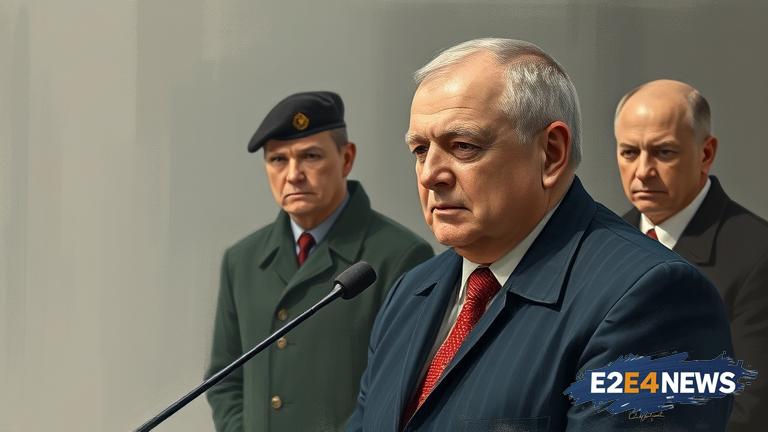The Belarusian opposition leader, whose name has not been disclosed, is currently residing in a foreign country. However, the Belarusian authorities have issued an extradition request, citing charges of extremism and inciting hatred. The opposition leader’s supporters argue that the charges are politically motivated and aimed at silencing dissenting voices. The international community has expressed concerns about the human rights situation in Belarus, where opposition activists and journalists are frequently harassed and persecuted. The country has been ruled by President Alexander Lukashenko since 1994, and his regime has been criticized for its authoritarian tendencies. The opposition leader’s case has sparked a wave of solidarity among human rights organizations and opposition groups worldwide. They argue that the extradition would put the individual’s life at risk, given the poor human rights record of Belarus. The country has been known to use torture and other forms of ill-treatment against political prisoners. The opposition leader’s lawyers have argued that the extradition request is based on fabricated charges and that their client is innocent. They have also pointed out that the individual has been granted refugee status in the country where they currently reside, and that extradition would violate international law. The case has highlighted the need for greater international pressure on the Belarusian authorities to respect human rights and the rule of law. The European Union and other Western countries have imposed sanctions on Belarus in response to its poor human rights record. However, more needs to be done to support opposition activists and human rights defenders in the country. The opposition leader’s case is not an isolated incident, but rather part of a broader pattern of persecution against dissenting voices in Belarus. The country’s authorities have used a range of tactics to silence opposition activists, including arrests, fines, and harassment. The international community must take a stronger stance against these abuses and support those who are fighting for democracy and human rights in Belarus. The opposition leader’s extradition case is a test of the international community’s commitment to human rights and the rule of law. It is essential that countries around the world speak out against the extradition request and support the individual’s right to seek asylum. The case has also highlighted the need for greater support for opposition activists and human rights defenders in Belarus. These individuals are risking their lives to speak out against the regime’s abuses, and they deserve our solidarity and support. The international community must do more to provide them with protection and support, including through the provision of asylum and other forms of assistance. In conclusion, the Belarusian opposition leader’s extradition case is a critical test of the international community’s commitment to human rights and the rule of law. It is essential that we speak out against the extradition request and support the individual’s right to seek asylum. We must also do more to support opposition activists and human rights defenders in Belarus, who are fighting for democracy and human rights in the face of overwhelming repression.





